Freezing weather can turn your reliable vehicle into a temperamental beast. From dead batteries to frozen locks, winter’s icy grip can bring a host of car problems. This guide provides practical solutions and preventative measures to help you navigate the challenges of Car Problems In Freezing Weather.
Dealing with a dead battery is a common winter woe. Cold temperatures reduce battery capacity, making it harder to start your engine. After a few frustrating mornings, you might be tempted to throw in the towel and call a tow truck. But before you do, check out some solutions for car acceleration problem when starting. A little troubleshooting might save you time and money.
One preventative measure is to keep your battery terminals clean. Corrosion can impede the flow of electricity, exacerbating cold-weather starting issues. Regularly cleaning the terminals with a wire brush and applying a protective coating can significantly improve your battery’s performance in freezing conditions. Additionally, consider investing in a battery warmer or parking your car in a garage to shield it from the extreme cold.
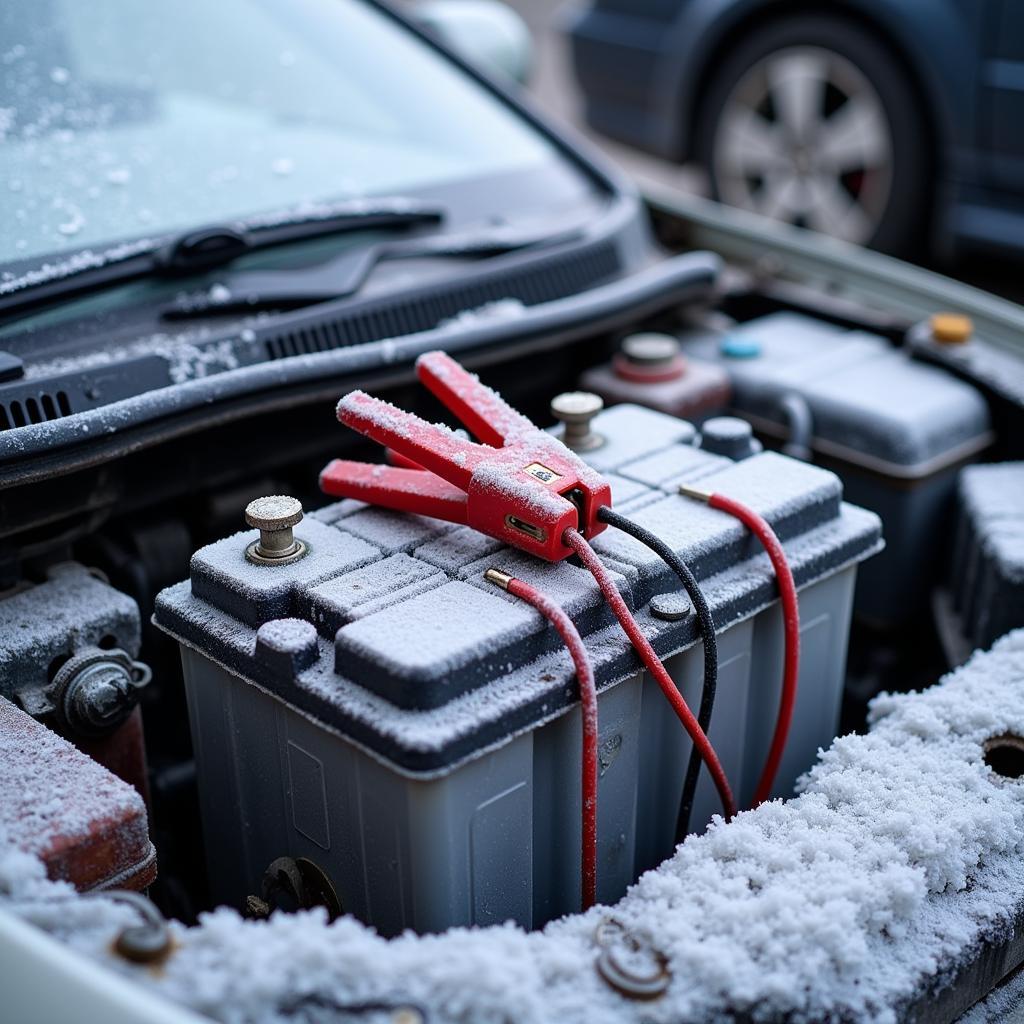 Frozen car battery in winter weather
Frozen car battery in winter weather
Another common car problem in freezing weather is frozen door locks. Moisture can freeze inside the lock mechanism, preventing the key from turning. Trying to force the key can result in a broken key, adding to your woes. A simple solution is to use de-icer specifically designed for car locks. Avoid using hot water, as this can damage the lock and surrounding paintwork. A hairdryer can be used cautiously, but be careful not to overheat the lock.
What can cause car alignment problems in the winter? Freezing temperatures can harden the ground, exaggerating existing alignment issues. Potholes and uneven surfaces, often hidden beneath snow and ice, can further worsen the problem. Noticeable symptoms include pulling to one side, uneven tire wear, and a vibrating steering wheel. Addressing alignment issues promptly is crucial to maintain safe handling and prevent further damage to your vehicle.
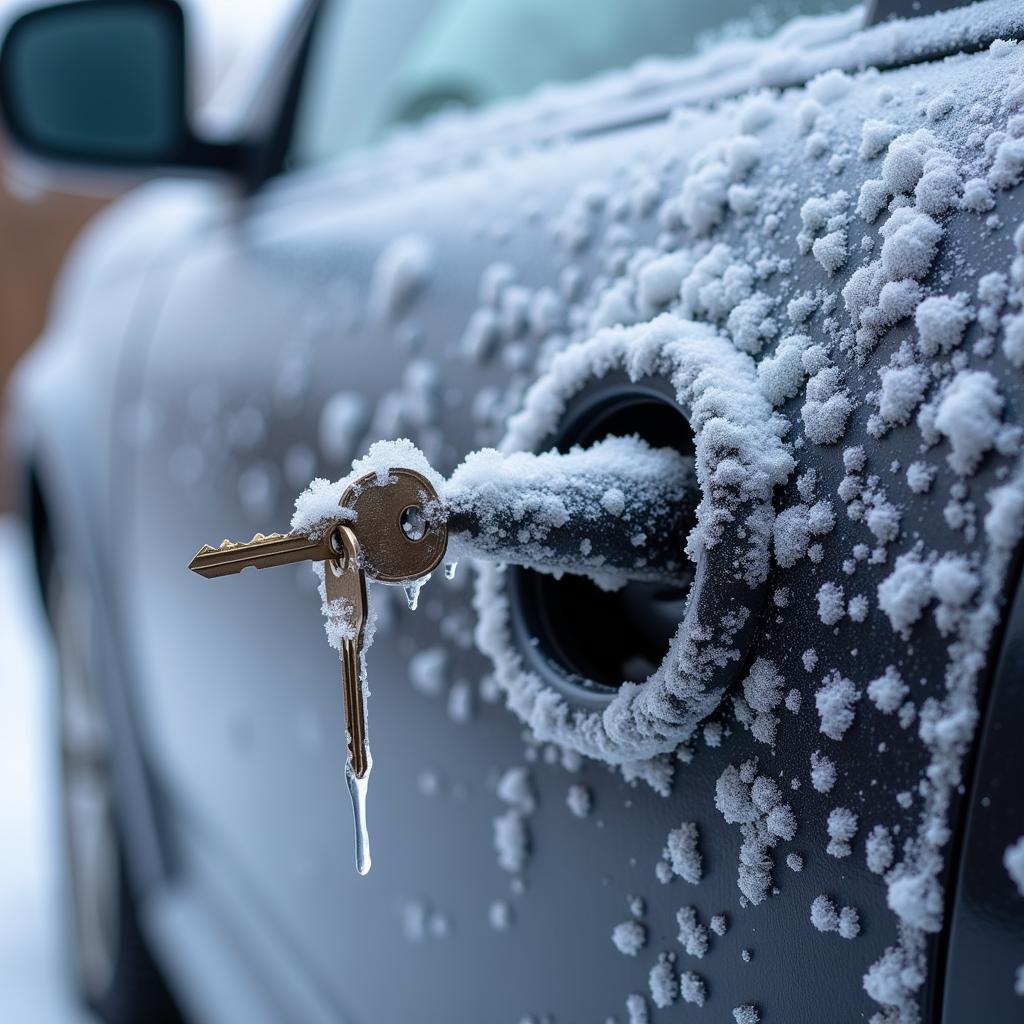 Frozen car door lock in winter
Frozen car door lock in winter
Why Won’t My Car Start in Freezing Weather?
There are several reasons why your car might refuse to start in freezing weather. The most common culprit is a weakened battery. As mentioned earlier, cold temperatures significantly reduce battery capacity. Other potential issues include thickened engine oil, which makes it harder for the engine to turn over, and frozen fuel lines, which restrict fuel flow to the engine.
How to Prevent Car Problems in Freezing Weather?
Taking proactive steps can save you from the frustration of dealing with car problems in freezing weather. Regular maintenance, such as oil changes and battery checks, is essential. Using winter-grade oil, designed to flow smoothly in low temperatures, can prevent engine starting problems. Also, ensure your coolant is properly mixed to prevent freezing. Keeping your fuel tank at least half full can prevent condensation and potential fuel line freeze-up.
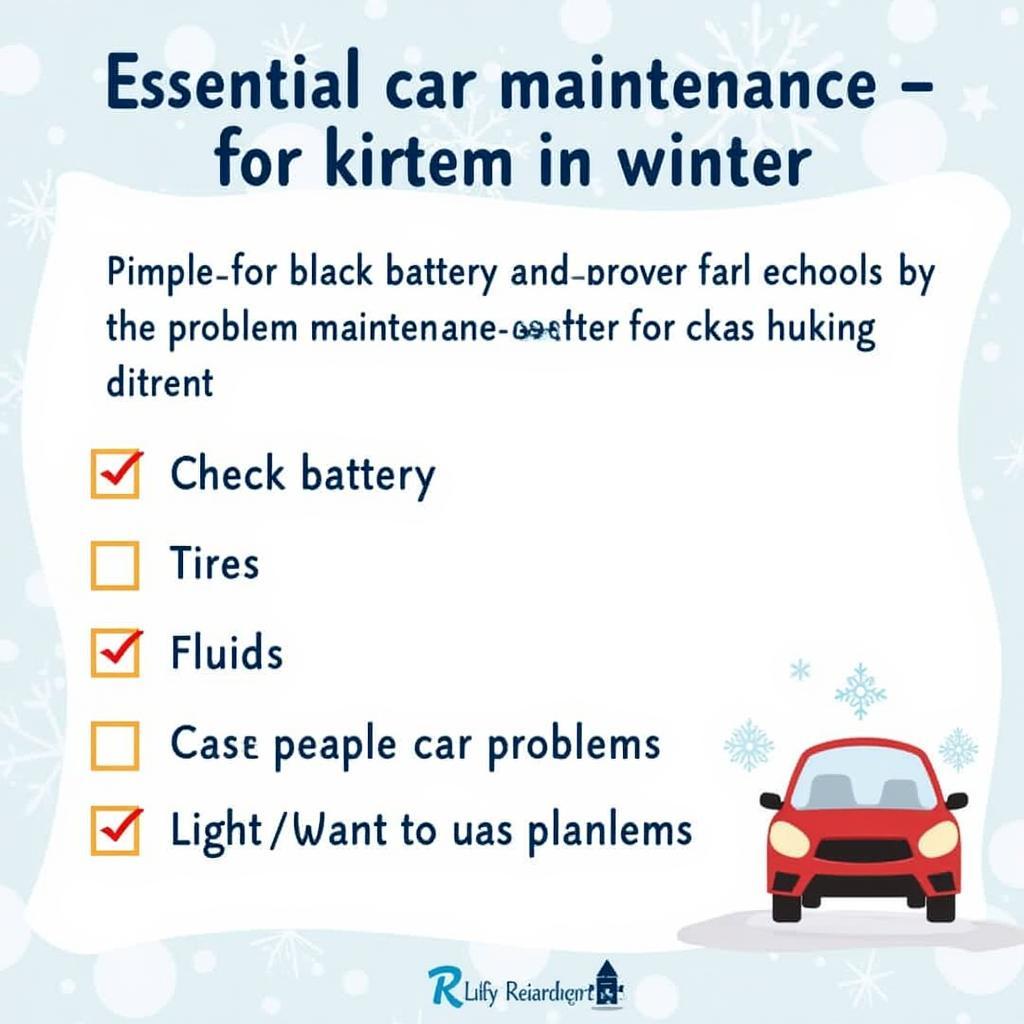 Car winter maintenance checklist
Car winter maintenance checklist
“A well-maintained car is much less likely to experience problems in freezing weather,” says John Miller, a seasoned automotive technician with over 20 years of experience. “Regular checks and preventative measures can save you time, money, and a lot of headaches during the winter months.”
Dealing with Frozen Wipers
Frozen wipers can be a nuisance, obstructing your view and posing a safety hazard. Avoid using the wipers until they are thawed. Pulling on frozen wipers can damage the wiper blades and motor. Use a scraper or de-icer to free the wipers from the windshield. Consider using winter wiper blades, which are designed to resist ice and snow buildup.
Flooded car problems can arise from melting snow and ice, potentially leading to electrical issues and corrosion. Proper drainage around your car is essential to prevent water accumulation. If your car has been flooded, have it inspected by a qualified mechanic to assess any damage and ensure safe operation.
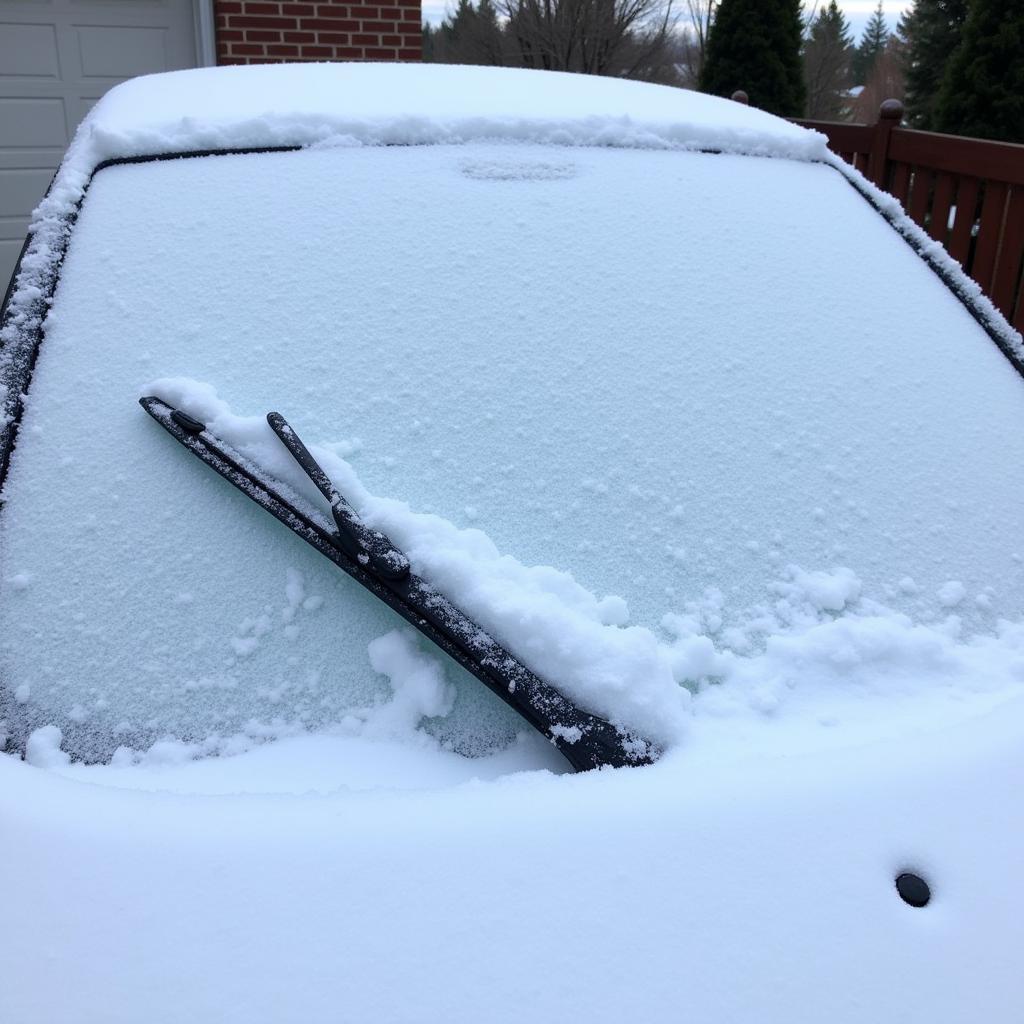 Car windshield with frozen wipers
Car windshield with frozen wipers
“Investing in a good set of winter wiper blades is a small price to pay for clear visibility and safe driving in winter conditions,” adds Sarah Johnson, a certified automotive instructor. “It’s a simple upgrade that can make a big difference.”
Conclusion
Car problems in freezing weather can be frustrating, but with proper preparation and maintenance, many can be avoided. Remember to keep your battery terminals clean, use winter-grade oil and coolant, and keep your fuel tank at least half full. Regularly checking your car’s vital systems can help you stay ahead of potential problems. Don’t forget to address any alignment issues promptly and invest in winter wiper blades for optimal visibility. For additional information on troubleshooting specific car issues, resources like troubleshooting a Sony car CD player or understanding what can cause car alignment problems can be valuable. If you’re facing car turning friction problems, it’s essential to address them immediately. For further assistance or personalized advice, feel free to contact AutoTipPro at +1 (641) 206-8880 or visit our office at 500 N St Mary’s St, San Antonio, TX 78205, United States.
FAQ
-
What is the most common car problem in freezing weather? Dead batteries are the most frequent issue.
-
How can I prevent my car doors from freezing shut? Apply silicone spray or lubricant to the rubber seals around the doors.
-
Can I use hot water to thaw frozen car locks? No, hot water can damage the lock and surrounding paintwork. Use de-icer instead.
-
Why is my car making strange noises in cold weather? Thickened fluids and contracting metal parts can cause unusual noises. Have your car checked by a mechanic if you are concerned.
-
How often should I check my car’s fluids in winter? Check your fluids at least once a month during the winter.
-
What should I do if my car gets flooded? Have it inspected by a qualified mechanic as soon as possible to assess any damage.
-
Are winter tires necessary in freezing weather? Winter tires provide significantly better traction and handling in snow and ice compared to all-season tires.




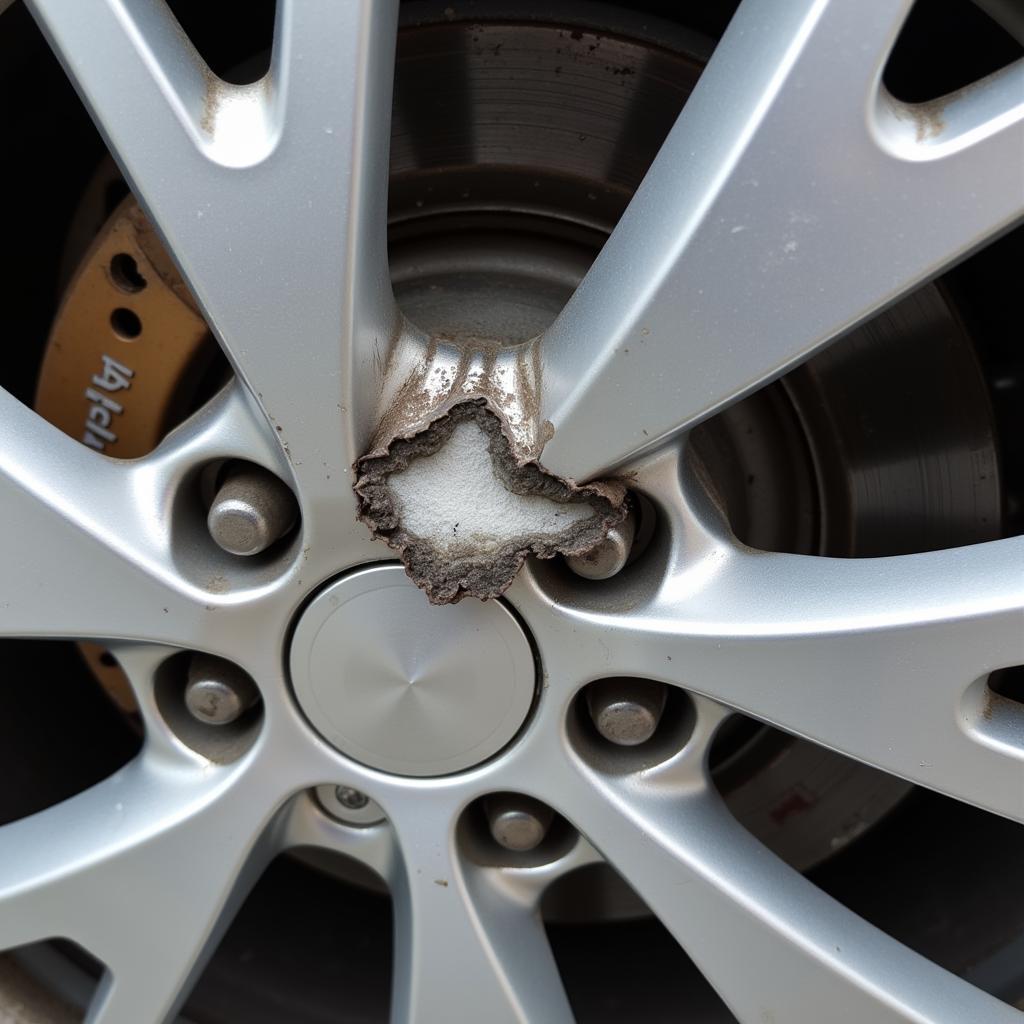

Leave a Reply